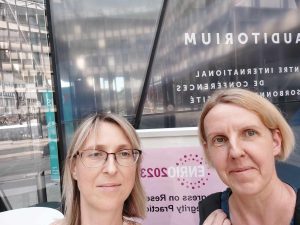The Office, together with its partners, has completed the implementation of the international BRIDGE project, Bridging Integrity in Higher Education, Business and Society (project No 2020-1-SE01-KA203-077973). The project was funded by the Erasmus+ programme under the action Cooperation for Innovation and the Exchange of Good Practices. The Erasmus+ programme is an important instrument for the development of the European education area, supporting the implementation of the strategic European cooperation in education and training and related sectoral agendas. It supports projects in higher education, vocational training, school education, adult education, youth, and sport. The total value of the European Union grant for the project is EUR 374,247.00.
The project involved five countries. The project was coordinated by Uppsala University (Sweden). Partners from Lithuania, the Czech Republic, North Macedonia, and Ukraine participated in the project. The aim of the project was to build integrity across sectors by raising awareness of integrity in higher education, business, and society as well as by providing appropriate skills to act in accordance with the values of academic ethics. The target group was masters students, doctoral students, and their supervisors.
Results and outputs produced by the project include checklists and guidelines on academic ethics in research, business, and society, educational materials (including gamified cases corresponding to real-life situations), and open educational resources (modules, etc.). The project has provided training in Lithuania, North Macedonia, and Sweden, organised two multiplier events and remote workshops. The Office led the development of two guidelines and their gamification (creation of vignettes and scenarios); developed a module on citizen science ethics; organised a project training in Vilnius and remote seminars as well as contributed to other project outputs in cooperation with partners.
Project results are available here.
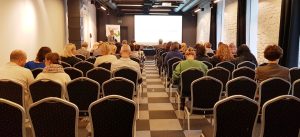
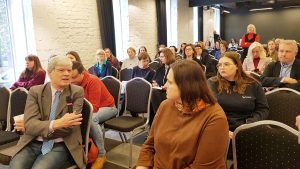
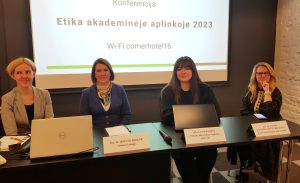

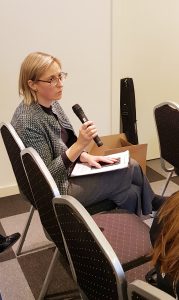
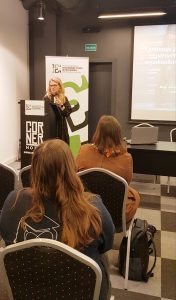
 On 26th September 2023, Office employees visited Vilnius University Šiauliai Academy, where they gave a presentation on the developments of ethical review to members of the community. Office employee Dr Julija Umbrasaitė presented the specificities of the preparation of a research data management plan and gave examples from foreign countries. Office employee Dr Birutė Liekė discussed the application of ethical review in research conduct and the types of informed consent, examples, and main mistakes. The ethical review of research conducted by masters students, the storage of research data, and other relevant issues were discussed with the participants.
On 26th September 2023, Office employees visited Vilnius University Šiauliai Academy, where they gave a presentation on the developments of ethical review to members of the community. Office employee Dr Julija Umbrasaitė presented the specificities of the preparation of a research data management plan and gave examples from foreign countries. Office employee Dr Birutė Liekė discussed the application of ethical review in research conduct and the types of informed consent, examples, and main mistakes. The ethical review of research conducted by masters students, the storage of research data, and other relevant issues were discussed with the participants.